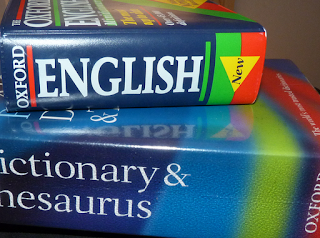TIME AND DISTANCE:
In my fantasy trilogy, The Star-Seer’s Prophecy, I tried to evoke a different world in subtle ways. For example, I avoid using our familiar measures of time. Instead of “minute,” I use “moment.” Instead of “week,” I use “quarter-moon.” Many cultures measure time by that clock in the sky, the Moon. For distance, I just referred to how many days a trip took.
And I had fun making up names and words to help evoke a different world. I used two methods for creating these new words: listening/intuition, and research.
LISTENING:
For most of my characters’ name, I start by ‘listening’ for a name, using my intuition. Sometimes, that’s it. I get it on the first try, like Zhovanya as the name of the Goddess in my trilogy. For others, I play around with the sound of the name until it fits the character. And for some, the name evolves as I get to know the character better. For example, originally Kyr’s name was Arik (which I believe relates to an old Nordic word for eagle). Somehow, I didn’t like the hard ‘k’ as the last sound of his name, so I changed it to Kyr (“keer” like “peer”), which to me sounds like the high, lonely cry of a hawk or eagle, and suits his character.
Over time, I noticed that there was a pattern in the way I was naming men vs. women, and changed a few names to fit that pattern, though there are some exceptions. You might check out the Cast of Characters (in Book Extras) on my website, and see if you can detect the pattern. I also ‘listened’ for the magical commands used by the Warrior-Mage, Rajani; for the names of magical potions; and for the sacred chants. (See the Glossary in Book Extras.)
RESEARCH:
In the case of the evil sorcerer-king called the Soul-Drinker, I found his name through researching the roots of words in the Dictionary of Word Origins by John Ayto. The Soul-Drinker’s name is Dauthaz, which comes from the Old English and Germanic roots of the word ‘death.’
This is also how I created the name of the land where the story takes place, and the terms used at the Sanctuary. The land is named Khailaz, which is a prehistoric Germanic word, ancestor of our word, ‘whole.’ Adding the suffix –itha to khailaz produced khailitha, the root of our words, ‘health’ and ‘heal.’
From this, I made up the words kailitha (divine healing energy); Kailithana (a priestess-healer); Kailithara (healing work of the Kailithana); Kailithos (one who is undergoing the Kailithara); and Kailithama (sacred chamber in which the Kailithana works with the Kailithos).
I don’t recall exactly how I tracked down the roots from which I constructed Aithané (Listener, Confessor), Phanaithos (Speaker, Divulger), or Phanaithara (Divulgence, Confession). I believe they come from Greek roots meaning to listen, and to speak.
A few other words, I just made up. For example, I derived zhan (life force energy) from Zhovanya.
Now, admittedly, I am not Tolkien, creating whole languages, and races of fantastic creatures. My focus is more on the inner world and healing ordeal of my hero, Kyr, than on detailed world-making. However, I did do my best to evoke a different place/time by creating new words and names, and avoiding overly familiar names and terms.
WHAT ABOUT YOU?
As a reader, which do you prefer: familiar names and terms; or new and different ones?
As a writer, what is your approach to evoking a different world?
Tour Notes
This
week you can grab the first book in the Star-Seer’s Prophecy
Trilogy for just 99 cents. That’s right
Dark
Innocence
is
marked way, way down, giving you the chance to explore this
thought-provoking fantasy series for yourself. Get your copy at
Amazon,
Barnes
& Noble,
or
iBooks today!
Oh,
and don’t forget to enter our giveaway for your chance to win an
autographed copy of
Fierce
Blessings
or
a Star-Seer’s Prophecy t-shirt. We have a total of 4 prizes for 4
lucky winners, hooray! Enter the giveaway right here:
www.novelpublicity.com/dark-innocence
About
Dark
Innocence:
In an ancient world of blood sorcery and healing magic, the
Soul-Drinker, a vicious necromancer-king, is draining the life from
the souls of the people and of the earth itself. Worse yet, he has
banished the land's rightful Goddess, and disrupted the Sacred
Balance, sending the mortal and divine realms whirling toward
destruction.
The only hope for salvation is a youth named Kyr, born and raised as one of the Soul-Drinker's blindly obedient slaves. Kyr knows only the pain, evil and cruelty of the Soul-Drinker's hell--and nothing of the Star-Seer's Prophecy that declares him to be the long-sought Liberator.
Rescued by strangers, Kyr embarks on a bewildering journey into a bizarre new life, where kindness and love are real. If he is to fulfill his destiny, he must battle his inner demons and fight to find his buried capacities for compassion and courage. Will he be able to surrender the inner ice that has been his soul's only protection in time to save the world from disaster?
The only hope for salvation is a youth named Kyr, born and raised as one of the Soul-Drinker's blindly obedient slaves. Kyr knows only the pain, evil and cruelty of the Soul-Drinker's hell--and nothing of the Star-Seer's Prophecy that declares him to be the long-sought Liberator.
Rescued by strangers, Kyr embarks on a bewildering journey into a bizarre new life, where kindness and love are real. If he is to fulfill his destiny, he must battle his inner demons and fight to find his buried capacities for compassion and courage. Will he be able to surrender the inner ice that has been his soul's only protection in time to save the world from disaster?
Again,
you can grab your copy for just 99 cents at
Amazon,
Barnes
& Noble,
or
iBooks
as
part of this special event!









